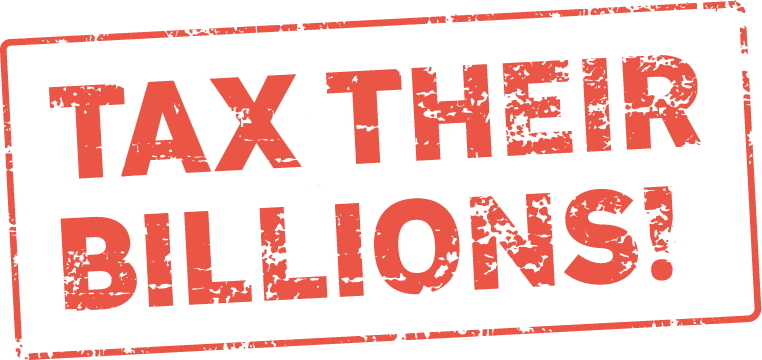To: Jeevun Sandher
Jeevun Sandher, Tax Their Billions!
Billionaires are greedily stockpiling money, while the planet burns and people suffer.
The solution is simple: By pushing governments to increase taxation on the super rich and fossil fuel giants in the UK and around the world, we can redirect excessive wealth towards climate action. We can fund the rapid roll-out of heat pumps, electrifying public transport, insulating our homes and building renewable energy around the world at the speed and scale needed to help limit global heating. This would lower costs and increase access to affordable renewable energy around the world. And it reduces emissions to ensure a livable planet for the future.
A fair minimum tax on multi millionaires and billionaires could go a long way to turning climate promises into climate action. And it shouldn’t stop there. There are so many urgent issues that need more investment, like the NHS, public transport, and support for people living in fuel poverty.
This kind of tax is not radical. What defies all logic is continuing to let the people with the most amount of wealth on earth pay less income tax than the rest of us and exploit our shared resources while doing so. Together, we can make sure the bill for climate action is paid for by the greediest. And that the money they pay will go towards a better world with strong communities, affordable, renewable energy for all and quality local services like housing and healthcare.
Why is this important?
The richest 1% emit as much planet-heating pollution as two-thirds of the Earth’s population. [1]
While many of us are hit with energy bills we can’t afford and faced with cold, damp homes during winter, we are about to witness history’s first trillionaire. Rich people are getting richer, while the rest of us are becoming worse off. In France, for instance, the average taxpayer in 2016 gave 48 percent of earnings to the government, while billionaires paid just 26 percent. And the mega-rich in the UK can leverage various strategies to lower their effective tax rates compared to the average taxpayer. [2]
Sources:
Sources:
1: Oxfam, 2023. "Climate inequality: A planet for the 99%."
2: Oxfam 2023. "The super-rich pay lower taxes than you and here's how they do it."
2: Oxfam 2023. "The super-rich pay lower taxes than you and here's how they do it."
.png)